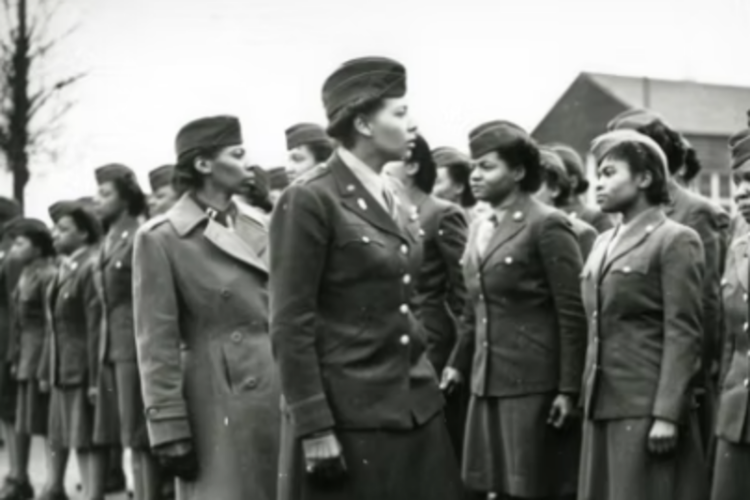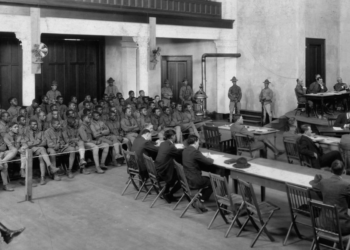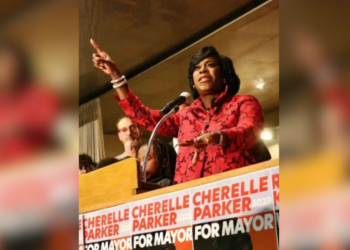The 6888th Central Postal Directory Battalion, a United States Army group made of 855 Black women, served during World War II in the mid-1940s and traveled overseas to Europe to lend their helping hands. Decades later, the little-known group may be honored with a Congressional Gold Medal, allowing their impactful role in the war to be publicly acknowledged.
U.S. Senator Jerry Moran of Kansas introduced a bill this past February that would allow the Black women assigned to the 6888th to receive a Congressional Gold Medal, saying in a statement, “These brave women and their service to our country deserve a special spot in history, and I will continue to work with my colleagues to make certain the Senate does its part in honoring their service and sacrifice.”
A U.S. Army battalion that was the only all-female, Black unit to serve in Europe during World War II will be honored. The Senate passed a bill that would award members of the 6888th Central Directory Postal Battalion the Congressional Gold Medal. https://t.co/pdzdilqPWp
— The Associated Press (@AP) July 13, 2021
The bill has been approved by the Senate and passed on to the House.
According to the Associated Press, the women were in Europe during their time in the battalion and had to avoid German U-boats while navigating to England. The 6888th was tasked with sorting and handling mail for the troops, which was reportedly unorganized and mounting at the time.
According to the Associated Press, the unit, also known as the Six Triple Eight, helped develop a plan for future mail handling by working in several shifts to process the various envelopes and packages and would even help track down recipients whose full name wasn’t displayed on their mail. In only three months, the 6888th was reportedly able to process 17 million mailed items.
Related Post: Senate Gives Capitol Officer Eugene Goodman Congressional Gold Medal
Major Fannie Griffin McClendon told the outlet about the experience, “They kept hollering about wanting us to go overseas, so I guess they found something for us to do overseas: Take care of the mail. And there was an awful lot of mail,”
“They expected we were gonna be there about two or three months trying to get it straightened out,” she continued. “Well, I think in about a month, in a month and a half, we had it all straightened out and going in the right direction.”









